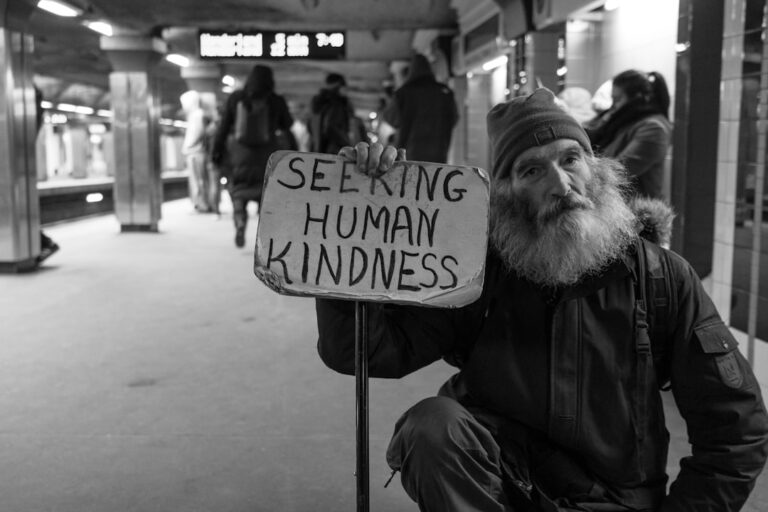
Have you ever found yourself nodding along in a conversation while your mind is a million miles away?
I’ve been there more times than I can count. Back when I was stuck in a cycle of bad habits—gaming all night, overeating, just being lazy—I wasn’t really present for anyone. I was so wrapped up in my own world, my own struggles, that I would listen just enough to give a generic reply. My relationships suffered. I felt disconnected from my friends, my family, and even from God.
I learned that changing my life wasn't just about breaking bad habits. It was about building good ones. One of the most powerful skills I started to practice was active listening. It’s more than just hearing words. It’s about offering someone your full attention as an act of respect and love. It’s a skill that has strengthened every single relationship I have.
If you feel like you're talking past people or that your connections could be deeper, you’re not alone. The good news is that anyone can become a better listener. It just takes intention and practice. Here are 30 simple ways to get started.
Set the Stage for Real Connection
Great listening often starts before a single word is spoken. It’s about creating an environment where a real conversation can happen.
- Put your phone away. Not on the table face down. Put it in your pocket or another room. This is the single most important step.
- Choose the right time and place. Don’t try to have a deep conversation when the TV is blaring or when one of you is about to run out the door.
- Decide to focus. Make a conscious choice to give this person your attention. Tell yourself, “For the next few minutes, this is all that matters.”
- Set an intention to understand. Go into the conversation with the goal of understanding their perspective not just waiting for your turn to speak.
- Say a quick prayer. Before a tough conversation I often ask God for wisdom and an open heart. It helps me get out of my own way.
- Face the person. Turn your body and your feet toward them. It’s a simple signal that you’re engaged.
Show You're Listening Without Saying a Word
Your body language can speak volumes. It can either build a wall or create a bridge between you and the other person.
- Make eye contact. You don’t need to stare them down. Just maintain natural, comfortable eye contact to show you’re locked in.
- Nod your head. A simple nod shows you’re following along and encourages them to continue.
- Lean in slightly. This shows you’re interested and eager to hear what they have to say.
- Uncross your arms and legs. Open posture is welcoming. Closed posture can make you seem defensive or uninterested.
- Avoid fidgeting. Tapping your fingers or bouncing your leg can be distracting and signal impatience.
- Mirror their expression. If they’re sharing something sad, a somber expression shows empathy. If they’re excited, let your face show it too.
Use Your Words to Build Bridges
Once you’ve set the stage, a few simple verbal techniques can transform the conversation. This isn’t about using tricks. It’s about proving you’re truly hearing them.
- Paraphrase what you heard. Say things like, “So, if I’m understanding you right, you felt…” This confirms you’re on the same page.
- Ask open-ended questions. Instead of a “yes” or “no” question, ask something that starts with “how,” “what,” or “why.” For example, “How did that make you feel?”
- Use small encouragers. Simple phrases like “I see,” “Uh-huh,” or “Go on” act as green lights, letting them know it’s safe to keep talking.
- Summarize their main points. After they’ve shared for a while, you can say, “Okay, so the main issues seem to be A, B, and C. Is that right?”
- Ask for clarification. It’s okay to say, “I’m not sure I follow. What did you mean when you said that?” It shows you care about getting it right.
- Validate their feelings. You don’t have to agree with them to validate them. Phrases like, “That sounds incredibly frustrating” or “I can see why you’d be upset” show you understand their emotional state.
- Wait for the pause. This is a tough one. Most of us jump in the second the other person takes a breath. Wait for a full stop. That silence gives them space to gather their thoughts.
- Avoid interrupting with your story. When someone shares a struggle, our first instinct is often to say, “Oh, me too! One time I…” This can hijack the conversation and make it about you. Let them have their moment.
- Give unsolicited advice sparingly. Unless someone directly asks, “What should I do?” try to hold back on giving solutions. Most of the time, people just want to be heard.
- Name the emotion. If you can, try to gently name the feeling you’re hearing. “It sounds like you’re feeling really disappointed.” This can make someone feel deeply understood.
Go Deeper Than Just the Words
This is where listening becomes a true act of connection. It’s about hearing the heart behind the words and building a stronger, more authentic relationship.
- Listen for what is not said. Pay attention to their tone of voice, their hesitations, and the topics they avoid. That’s often where the real story is.
- Be patient with silence. Don’t rush to fill every quiet moment. Sometimes a person needs that silence to process their feelings or find the right words.
- Separate the person from the problem. Remember you’re on their team. It’s you and them against the problem, not you against them.
- Stay curious. Even if you think you know what they’re going to say, stay curious. People can surprise you.
- Thank them for sharing. When someone opens up to you, especially with something vulnerable, thank them. Say, “Thank you for trusting me with that.”
- Follow up later. A day or two after a heavy conversation, a simple text like, “Hey, I was thinking about what we talked about. Hope you’re doing okay,” can mean the world. It shows you didn’t just listen and forget.
Learning to listen has changed everything for me. It’s helped me rebuild relationships that were strained by my past selfishness. It’s made me a better husband, friend, and leader. Most importantly, it has deepened my relationship with God. When I quiet my own inner noise and truly listen in prayer, I can better hear His guidance.
So, here’s my challenge for you: Who is one person you can offer the gift of your full attention to this week? Pick one person, put your phone away, and just listen. You might be surprised by what you hear.





